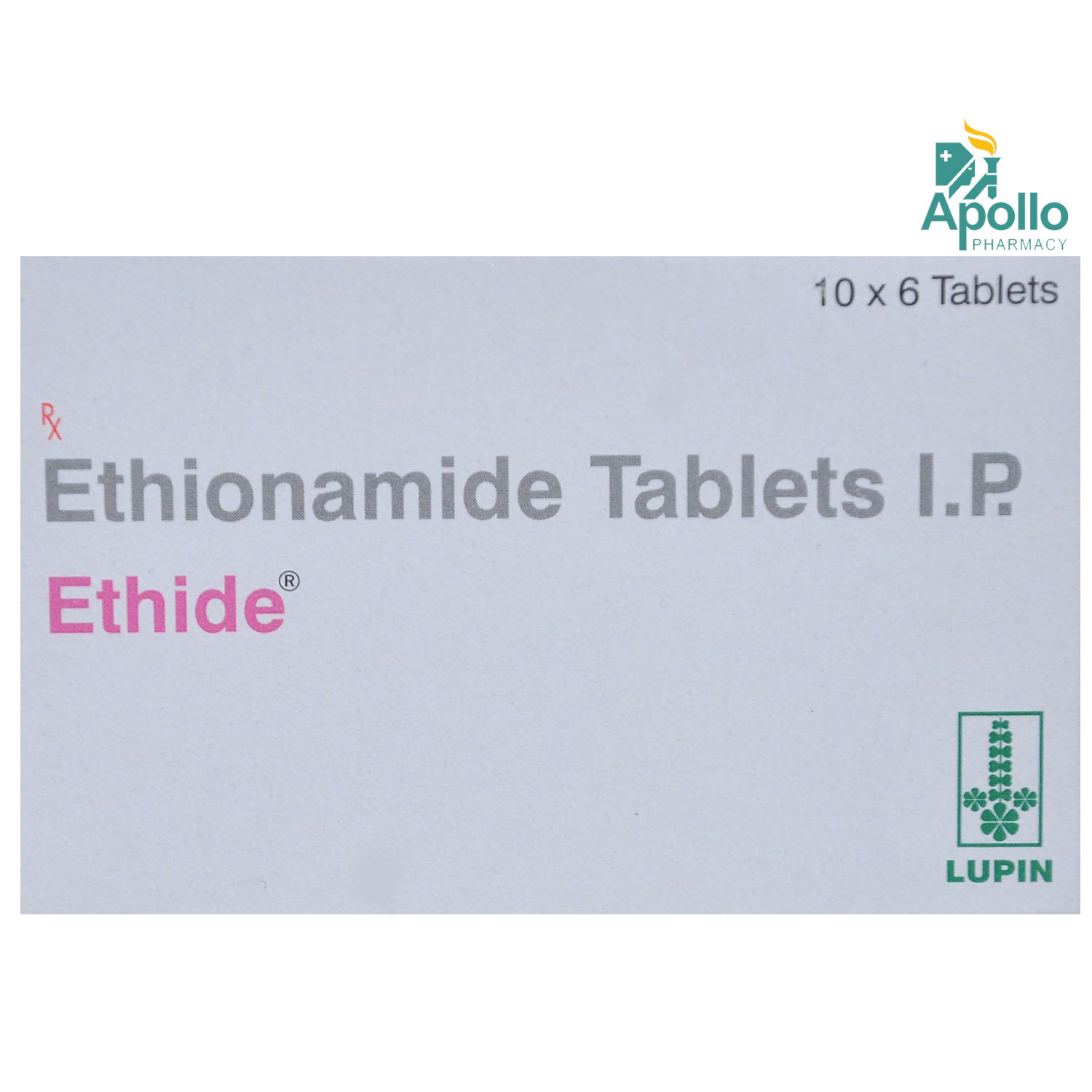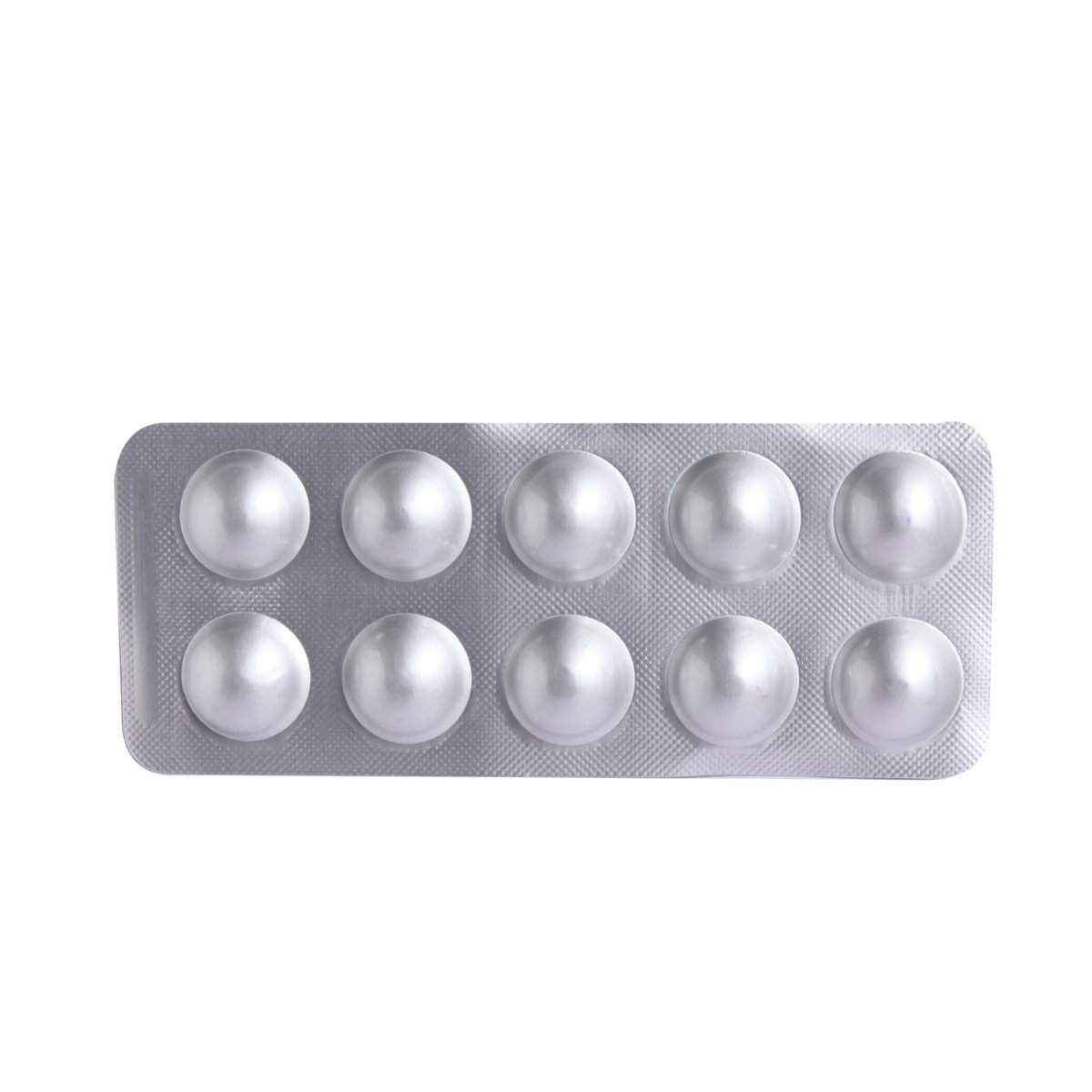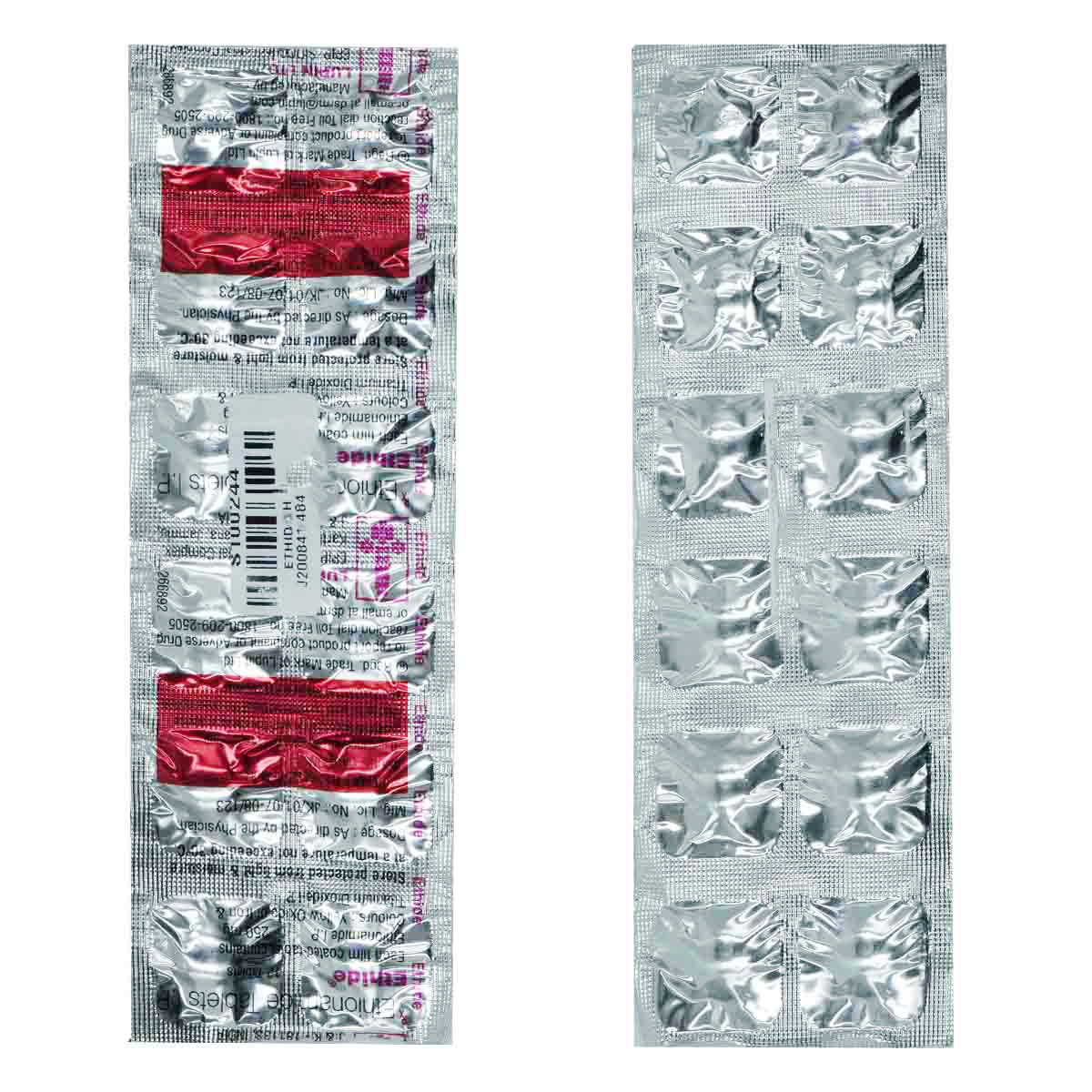Ethionamide
About Ethionamide
Ethionamide belongs to the group of medicines called antibiotic drugs primarily used to treat tuberculosis. Tuberculosis is an infectious disease that mainly affects the lungs. Ethionamide should not be used alone and must be given in combination with other tuberculosis medications. Ethionamide does not work against infections caused by the virus, including cold and flu.
Ethionamide consists of a medicine called 'Ethionamide' that works by inhibiting bacteria's growth that causes tuberculosis (Mycobacterium tuberculosis).
The dose and duration of Ethionamide can vary depending on your condition and the severity of the infection. In some cases, you may experience common side effects such as nausea, vomiting, abdominal pain, diarrhoea, increased saliva, strange metallic taste, or sores in the mouth. Most of these side effects do not require medical attention and will resolve gradually over time. However, you are advised to talk to your doctor if you experience these side effects persistently.
Do not stop taking Ethionamide despite symptomatic relief. Treat your condition effectually, and continue taking Ethionamide for as long as it has been prescribed. Take Ethionamide with caution if you have diabetes. Consult your doctor before taking Ethionamide if you are pregnant. Avoid breastfeeding while taking Ethionamide as it passes into breast milk. Ethionamide may rarely cause dizziness, and vision problems, so drive with caution if you experience these signs. Avoid consuming alcohol with Ethionamide as it might lead to liver problems or mental/mood changes. Do not take Ethionamide if you have severe liver disease. Inform your doctor immediately if you experience/notice confusion, seizure, dark urine, or clay-coloured stools after taking Ethionamide.
Uses of Ethionamide
Medicinal Benefits
Ethionamide contains ‘Ethionamide’ that works by inactivating a bacterial genetic material that allows TB bacteria (Mycobacterium tuberculosis) to make a copy of its protein for further growth inside the host cell (human). Ethionamide is indicated in treating active tuberculosis in patients with Mycobacterium tuberculosis infection resistant to rifampin or isoniazid.
Directions for Use
Storage
Side Effects of Ethionamide
- Nausea
- Vomiting
- Diarrhoea
- Stomach pain
- Increased salivation
- Metallic taste in your mouth
- Headache
- Dizziness
- Drowsiness
Drug Warnings
Before starting Ethionamide, please inform your doctor if you have a medical history, especially of: liver disease, underactive thyroid (hypothyroidism), kidney disease, or eye problems (such as optic neuritis and cataracts). Take Ethionamide with caution if you have diabetes. Ethionamide may lower your blood sugar levels. Also, check your blood sugar level regularly as directed by your doctor. Consult your doctor before taking Ethionamide if you are pregnant. This medication is not recommended for use in pregnant women. Avoid breastfeeding while taking Ethionamide as it passes into breast milk. Ethionamide may cause dizziness, and vision problems, so drive with caution. Avoid consuming alcohol with Ethionamide as it might lead to liver problems or mental/mood changes.
Drug Interactions
Drug-Drug Interactions: Ethionamide may interact with an Aminosalicylate sodium, Bacillus Calmette-Guerin Vaccine, Cycloserine, Ethambutol, Isoniazid, Omeprazole, or Rifabutin.
Food-Drug Interactions: Do not consume alcohol while taking Ethionamide as it could lead to increased dizziness or mental/mood changes.
Drug-Disease Interactions: Ethionamide may interact with liver disease, vision problems, diabetes, or a thyroid disorder.
Drug-Drug Interactions Checker List:
Safety Advice

Alcohol
unsafeAvoid alcohol consumption while taking Ethionamide as it could lead to increased dizziness or mental/mood changes.

Pregnancy
cautionPregnancy Category C: There are no adequate and well-controlled studies in pregnant women. It is unknown whether Ethionamide can cause fetal harm when administered to a pregnant woman. It should not be used in pregnant women.

Breast Feeding
unsafeEthionamide may pass into breast milk. Do not breastfeed while taking Ethionamide.

Driving
unsafeEthionamide may cause dizziness, vision problems, numbness and tingling sensation in hands and feet. Do not drive or operate machinery if you experience these symptoms.

Liver
unsafeDo not use ethionamide if you have severe liver disease. consult your doctor if you have any concerns.

Kidney
cautionDose adjustment may be needed. Please consult your doctor if you have any concerns regarding this or kidney impairment/kidney disease before taking Ethionamide.

Children
cautionEthionamide should not be used in children without a doctor's advice.
Habit Forming
Diet & Lifestyle Advise
- Pineapple juice might help soothe the symptoms of cough and cold. It also has anti-inflammatory and mucolytic properties.
- Foods rich in vitamin C, such as kiwi, broccoli, and bell pepper, help improve the immune system.
- Avoid processed and fried foods.
- Warm ginger tea or warm soup can help relieve a cough.
- Avoid foods and drinks containing histamine or tyramine, such as cured meat, matured cheese, soya, tuna, salmon, mackerel, wine, and beer.
- To help prevent certain side effects (such as nerve problems) from this medication, your doctor may advise you to take vitamin B6 (pyridoxine).
- Quit smoking and avoid alcohol consumption.
Special Advise
- Your doctor may advise you to get regular liver tests while taking Ethionamide to check how your liver functions.
- You may need frequent blood tests to check your liver and thyroid function. You may also need frequent eye exams.
- If you have diabetes, check your blood sugar levels carefully while on this medication.
Patients Concern
Disease/Condition Glossary
Tuberculosis (TB): Tuberculosis is an infectious disease that affects the lungs, but it can also spread to other body parts such as the kidneys, brain, spine, and bone marrow. Tuberculosis is caused by a bacteria named Mycobacterium tuberculosis. It is a contagious disease which can spread to others through small droplets released into the air by a person suffering from tuberculosis. Symptoms include a cough that lasts for a few weeks, pain while coughing or with normal breathing, unexplained fatigue, fever, night sweats, loss of appetite and weight. People who smoke or consume alcohol, people diagnosed with HIV, and immune system problems are more likely at risk of developing active TB.
FAQs
Ethionamide is an antibiotic which works by inhibiting the synthesis of mycolic acid (a saturated fatty acid found in the bacterial cell wall), thereby stopping the synthesis of the bacterial cell wall. Eventually, this leads to bacterial cell wall disruption. Ethionamide may have bacteriostatic or bactericidal in action. Ethionamide indicated in the treatment of active tuberculosis in patients with Mycobacterium tuberculosis infection resistant to rifampin or isoniazid.
Do not stop taking Ethionamide despite symptomatic relief. Treat your condition effectually, continue taking Ethionamide for as long as it has been prescribed for you.
Ethionamide might decrease the effectiveness of oral contraceptives (birth control pills). This could lead to an unplanned pregnancy. Instead, use a reliable barrier method of contraception such as condoms or the coil while taking Ethionamide. Consult your doctor if you have any concerns regarding this; your doctor may suggest an alternate contraception method.
Ethionamide might affect vision rarely. It may cause blurred/decreased/double vision, colour blindness, or eye pain. Inform your doctor right away if you notice/experience any of these serious side effects. Do not drive if you experience any of these symptoms.
Ethionamide might interfere with live bacterial vaccines and cause them not to work as well. Do not have any immunizations/vaccinations while on this medication.




